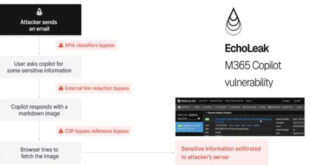A threat actor is reportedly advertised to sell a zero-day exploit for Fortinet’s FortiGate firewalls on a dark web forum.
The exploit claims allow attackers to remotely execute code and access configurations on FortiOS without needing credentials, potentially taking control of vulnerable devices.

Cybersecuritynews reported the forum post observed by ThreatMon boasts extensive capabilities, including access to sensitive configuration files extracted from compromised devices. These files purportedly contain:
Local user credentials: Encrypted passwords stored in local_users.json.
Admin account details: Permissions and trust relationships documented in admin_accounts.json.
Two-factor authentication (2FA) status: Information on FortiToken configurations (two_factor.json).
Firewall policies and network configurations: Complete rule sets, NAT mappings, internal IP assets, and address groups.
This data could enable attackers to evade security, access networks, and launch additional attacks. The exploit specifically targets FortiOS versions with known authentication bypass vulnerabilities, a common problem in Fortinet products.
Fortinet recently announced a critical vulnerability (CVE-2024-55591) that allows attackers to obtain super-admin privileges via specially crafted requests. This flaw affected FortiOS versions 7.0.0 to 7.0.16 and FortiProxy versions 7.0.0 to 7.0.19 and 7.2.0 to 7.2.12.
If the hacker’s claim is true, the advertised zero-day exploit poses significant risks to organizations using Fortinet firewalls.
Unauthorized Access: Attackers could gain administrative control over devices, modify configurations, and extract sensitive data.
Network Compromise: Exploited firewalls could serve as entry points for network lateral movement.
Data Breaches: Leaked credentials and configuration files could lead to exposure to confidential information.
Operational Disruption: Altered firewall policies may disrupt normal network operations or create vulnerabilities for future attacks.
Fortinet has repeatedly encouraged users to apply patches quickly to address product vulnerabilities. They’ve issued advisories on indicators of compromise (IOCs) and recommended security measures like disabling HTTP/HTTPS admin interfaces and restricting access with local policies.
Source: Cybersecuritynews, Threatmon, the420.in
New Security Companies Who Are Exploring the Bangladeshi Market
 InfoSecBulletin Cybersecurity for mankind
InfoSecBulletin Cybersecurity for mankind














